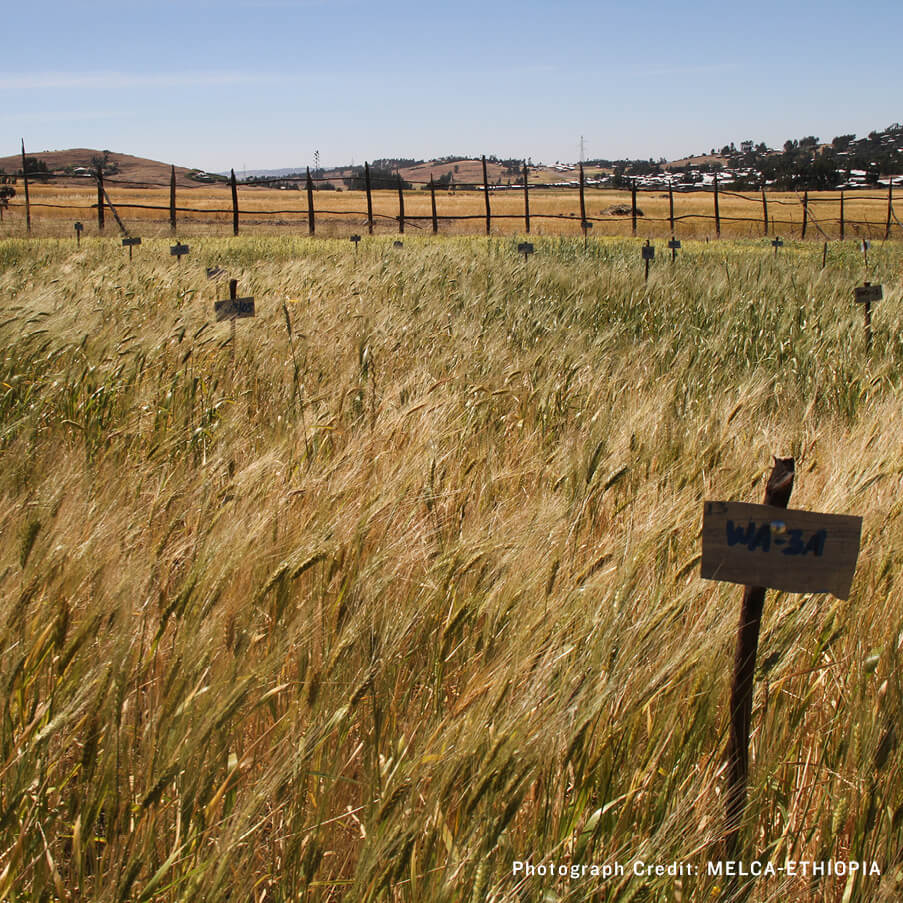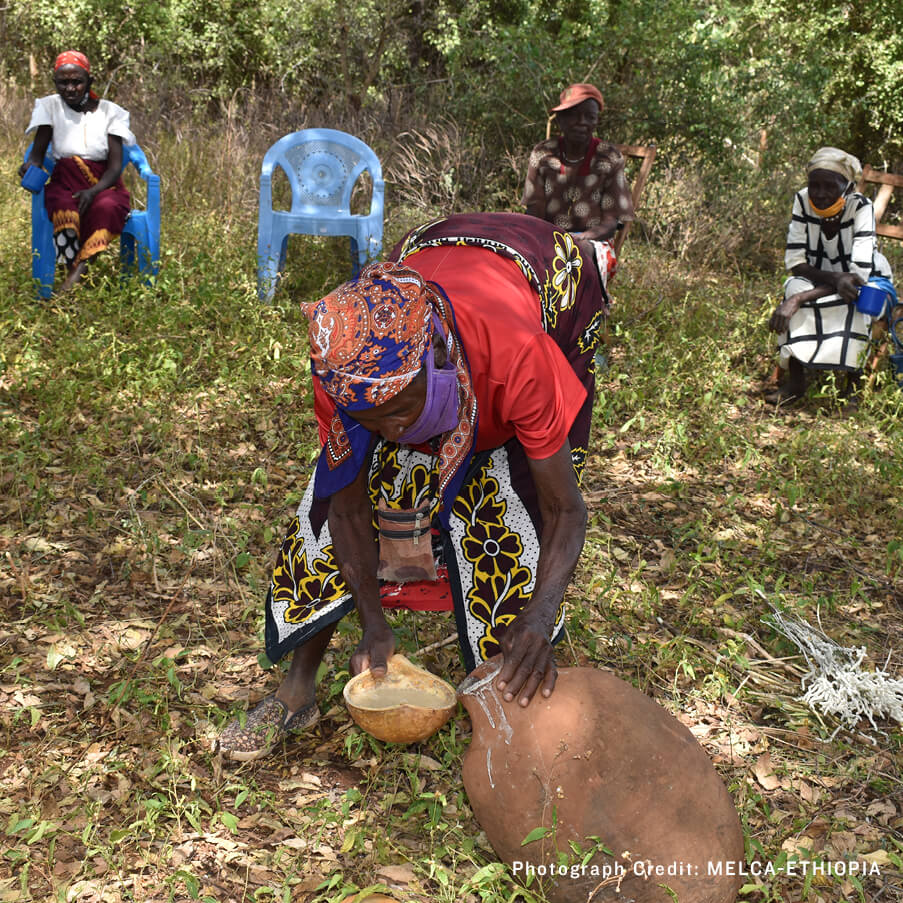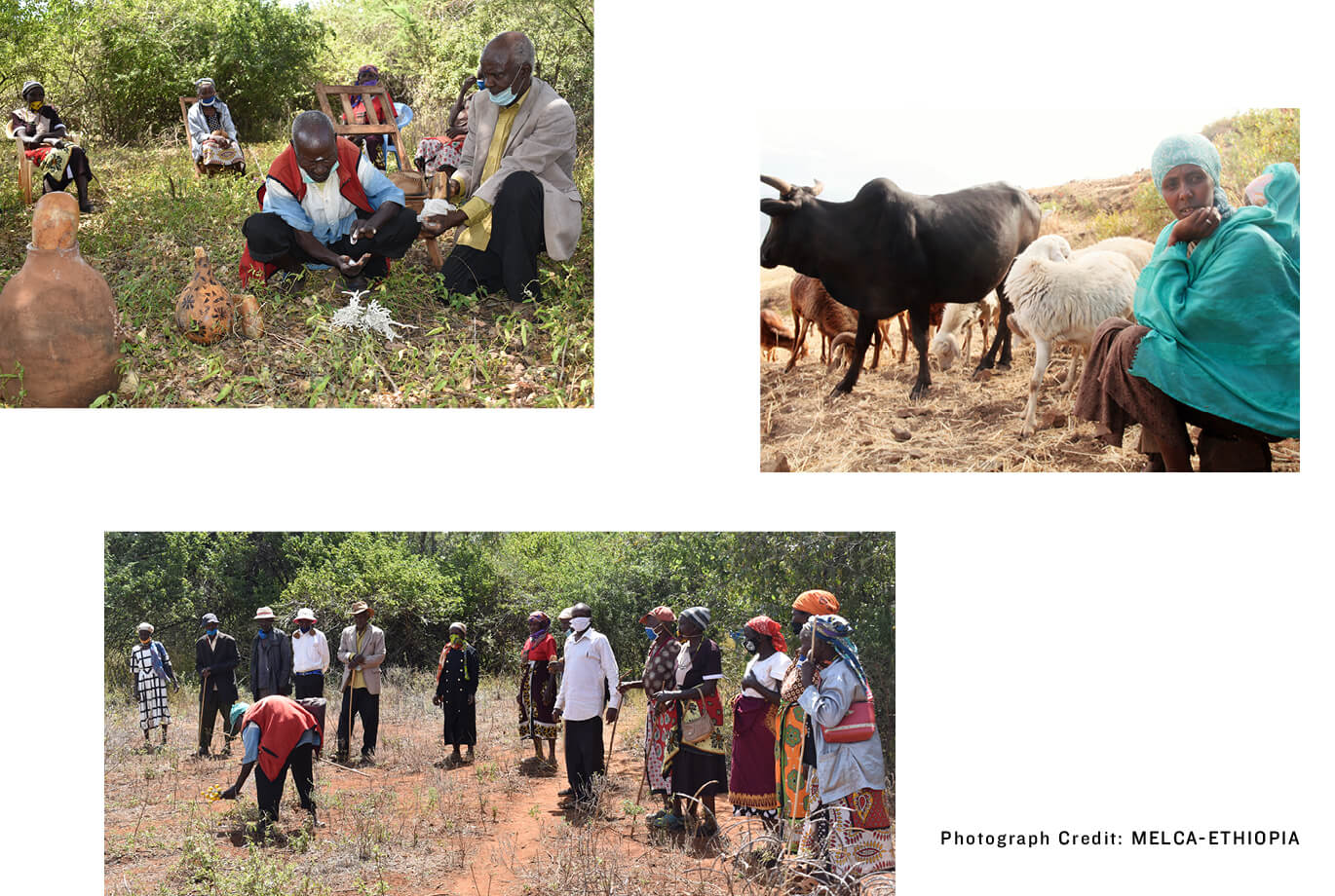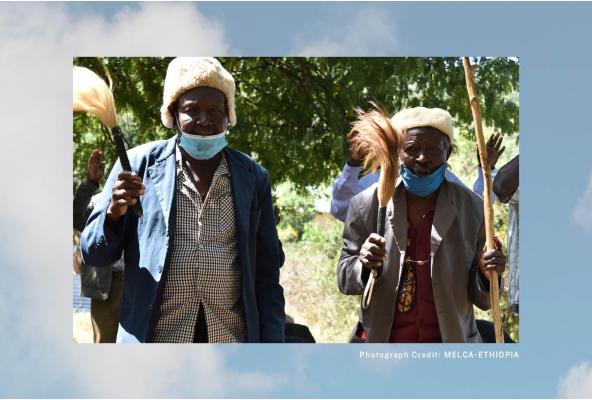Sustainable farming in Ethiopia, from one generation to the next.
We’re taking one step with One Earth. This project - led by MELCA in partnership with Agroecology Fund - will help conserve the cultural and environmental heritage in Ethiopia. Here’s the story:


Imagine the scene. Fields of crops waft in the breeze. They are rich in bird and insect life. Trees provide shade and shelter. There are all kinds of plants in small fields. The plants here are species that have grown in the area for thousands of years. If you were to take a handful of soil, it would be rich with micro-organisms. These tiny creatures create the ideal conditions for healthy, new growth.
This is biodiversity in action – and it’s a wonderful opportunity to show the power of reconnection. That’s exactly what MELCA work towards. They are a local non-profit organisation, working to empower local growers and their communities. Founded in 2004 by environmentalists and lawyers, their focus is on restoring seed varieties native to local areas.
Much of the biological diversity that was once normal in this part of east Africa has gone. Aggressive industrial agriculture has worn it away. Industrial agriculture includes the use of chemicals - pesticides and fertilisers – because non-native species need extra help. They also need more water than native varieties. Decades ago, this seemed like a good idea. Chemical fertilizers helped increase crops – but it wasn’t sustainable.
Now science shows that chemicals destroy microscopic life in the soil. Microbes and plants have evolved together – it’s a natural life support system. Meanwhile, the destruction of trees has led to habitat loss for birds, insects and mammals. All these creatures play their part in maintaining a well-balanced agricultural system.
The industrialised way of farming isn't just biologically unsustainable. It has rising costs too. Local producers are under strain - there's a threat to food security. Solving this crisis is MELCA’s mission.


How will they do it? By working with local people to share the value of biodiversity through ‘agroecology’. This is a way of farming that balances relationships: plants, animals, people and their environment. In short – it’s a system that looks to put back what it takes out – using nature’s model.
MELCA works at a grassroots level in local districts. One scheme involves connecting local elders with youngsters, to pass skills across generations. At three schools, children, parents and the wider community share knowledge. They learn about local plant species and how to save the seeds of these plants – selecting varieties and managing a seed bank. They also discover better ways to save water, and how to use organic practices to restore the soil.
Take one step for One Earth. If this project excites you, please join us in shouting about it.
We’ll give $1 every time you comment and share using #OneStep4OneEarth. Help us spread the word! Vivo X One Earth will support community giving to a total of $30k.
How will this funding be used?
MELCA’s project puts women at the forefront of food production and marketing. In the last six years, MELCA has helped to create over 50 self-help women’s groups.
By helping women to produce and sell organic food, MELCA’s projects create sustainable incomes.
MELCA want to change national practices and influence government policy. Funding will also help expand projects – showing the value of biodiversity and seedbanks at a national level.
MELCA is a not-for-profit organization. One Earth ensure that 100% of support received goes directly to the projects featured in this campaign.
If we act TOGETHER we can tackle the issues facing our planet. Solutions exist today, so we’re taking one step with One Earth to champion three Indigenous-led projects.
They all represent solutions our planet needs now. With help, these projects can grow, driving change from the ground up. Each one will:
- protect lands that store carbon and contain rich biodiversity
- support farmers practicing regenerative farming methods
- preserve cultural knowledge – (elders know a thing or two about how people and planet can work in harmony!)



